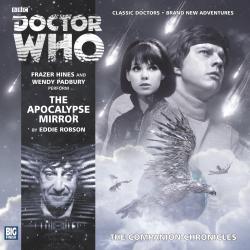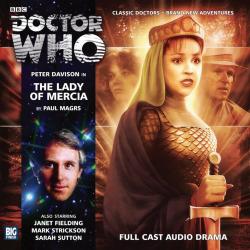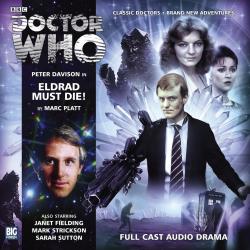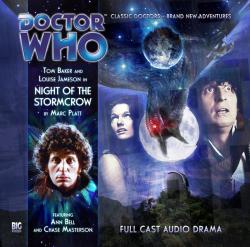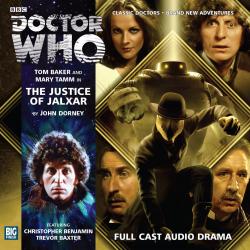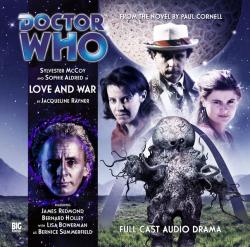"Buck up, Bleaky! You’ve always wanted to see history up close, haven’t you?""Not this close – not actually taking part! I never wanted to be locked up and sleeping in filth and dressing up ...""Tough – because that’s what time travel is like!"Tegan Jovanka and Professor John Bleak, The Lady of MerciaIt’s well known that part of Doctor Who's brief as a children’s program back in the Sixties was to educate as well as entertain. Hence, the rationale for the historical serials, where the only fantasy elements were the TARDIS and her crew. The time travellers would visit what the modern TV series now describes as "fixed points" in history, powerless to influence or change specific events but often having to extricate themselves from the politics and petty rivalries of the age.
The tone of many historicals in the
Hartnell era was quite earnest, even adult (eg
The Aztecs,
The Crusade,
The Massacre) while others were more humorous in style (
The Romans,
The Myth Makers,
The Gunfighters), although never at the expense of the drama – the Doctor and his companions were often still walking a fine line between safety and danger.
Of course, with some notable exceptions (
The Highlanders in the
Troughton era and
Black Orchid even later in the
Davison era), the historical drama was dispensed with after Hartnell’s time, largely because young fans preferred the SF/fantasy element.
Big Finish has since its inception revisited the historical format quite frequently and successfully, spanning all of its Doctors, from
Tom Baker through to
Paul McGann.
Peter Davison’s Doctor has had his fair share of historicals (eg
The Eye of the Scorpion,
The Council of Nicea,
The Church and the Crown,
The Kingmaker), most of which were tongue in cheek affairs.
The Lady of Mercia continues that vein. Structurally the tale is different from some of the other BF historical dramas (and particularly the 1960s TV historical serials) in that it is as much a time travel story as an historical. It starts unassumingly at a 1980s university, where DIY time travel experiments are occurring in the physics department, a conference about mediaeval queens is about to commence and unruly students are, as one academic character describes it, “revolting” (as much in character, as in vociferious protests!).
Indeed, based on the above description,
The Lady of Mercia initially has all the ingredients of a Douglas Adams script, even down to the jibes about students and undergraduates. Certainly, writer
Paul Magrs seems to channel Adams a lot in the narrative. When a warrior princess is inadvertently brought into the present and disrupts the opening drinks session at the conference, it seems a little coincidental that a female French academic perceives the princess to be part of the performance, much as the two art critics in the Louvre in City of Death perceive the dematerialisation of the TARDIS to be part of the art. Some of the supporting characters from the university are very flawed in an Adams-esque way too. There is a married couple in the story – an historian and a physics scientist - who have both been engaged in extra-marital affairs. One of these trysts is with a student who is leading the protest against the very same physics department that his lover works for!
However, once the story’s time travel element comes to the fore,
The Lady of Mercia gradually morphs from an Adams-esque comedy into a serious historical adventure. Tegan finds herself swept back in time and, despite her best efforts, caught up in the intrigue and politics of 10th century Mercia. Indeed, on three occasions she ends up pretending to be someone she isn’t, initially posing as a "world-renowned" Australian academic historian in 1983, as a princess in England in the Dark Ages and ... well, the third would be a spoiler but insofar as the humour of the story goes, it’s a masterstroke for her bossy character!
Of course, like the Hartnell historical serials, the TARDIS crew, including Tegan, are powerless to stop the natural course of events, despite the sympathies they have for the characters they meet (notably the mediaeval Queen Æthelfrid and her daughter Princess Ælfwynn). And it is in the climax that Magrs is not imaginative enough and overall delivers a fairly dull, disappointing script. If you’re going to create a “warts and all” impression of a historical time, society and place – and Magrs portrays the political situation and the dramatis personae in 10th century Mercia extremely well – then you also need to rock the TARDIS crew to its very core (and through them the listener as well).
I’ve always been struck by the conclusions to other
Doctor Who historical tales whereby something tragic happens to a supporting character that you grow to love and respect – if only to reinforce to the companions what an omnipotent , unforgiving mistress history is and how dangerous time travel can be. It happens in
Sanctuary (Virgin NA, 1995),
The Shadow in the Glass (BBC Books, 2001),
World Game (BBC Books, 2005),
Doctor Who and the Pirates! (BF, 2003), and even
Earthshock (in which, of course, Adric’s demise was part of the web of time).
The Lady of Mercia would have benefitted enormously from a similar approach but sadly it peters out to a fairly predictable, lacklustre conclusion. Even then, none of Magrs’ characters – especially the academic characters - are sympathetic enough for the listener to feel any grief if one of them is lost.
Despite the script’s flaws, the production meets Big Finish’s usually high standards and the performances from the cast make the story a lot livelier and entertaining than it truly is on paper. The regulars –
Peter Davison,
Janet Fielding,
Sarah Sutton and
Mark Strickson – have all commented that they enjoyed the script because it wasn’t overly complicated, although I don’t feel it necessarily does their characters justice. Janet Fielding is wonderfully ballsy as Tegan and relishes playing the part in a more regal, swashbuckling style but the same cannot be said of her fellow travellers. Nyssa is reduced to the archetypal companion, asking the Doctor the usual questions, while Turlough is the teaboy (much to his disgust) at one point and brawls with an undergraduate for comic effect at another (
"I’ll tell you what, posh boy, I’ve made a right Eton mess of your nose!" "It’s Brendon, you cretin! Brendon!"). And Mark Strickson used to complain that all too often in his TV series days Turlough would spend too much time in various states of captivity! I’m not sure Turlough’s lot in
The Lady of Mercia is much of an improvement.
The other performances from the guest cast are all competent, with four of the actors convincingly taking on dual roles in both time periods. Although the mediaeval accents are very clichéd (evoking for me shades of
Games of Thrones!), the fact that guest star
Kieren Bew can sound so different as the menacing Dane knight Arthur Kettleson compared to his whining contemporary part as Barry shows just how talented Big Finish’s performers are.
While
The Lady of Mercia is not your run of the mill historical, its premise is too lightweight for a full fledged two hour drama. The titular character’s real story has been mostly lost to history and legend and while Magrs offers a plausible interpretation of how events may have played out, it is not “meaty” enough to have warranted a full cast audio drama. Is it any wonder Magrs includes a time travel sub-plot and injects plenty of humour into the script as filler? This story would have fared better as a 60-minute Companion Chronicle, told from Tegan’s point of view, with much of the university/time travel sub-plots jettisoned. In that format,
The Lady of Mercia would have been a more compelling story, particularly if narrated by Janet Fielding who would have given it a great stand alone performance.
